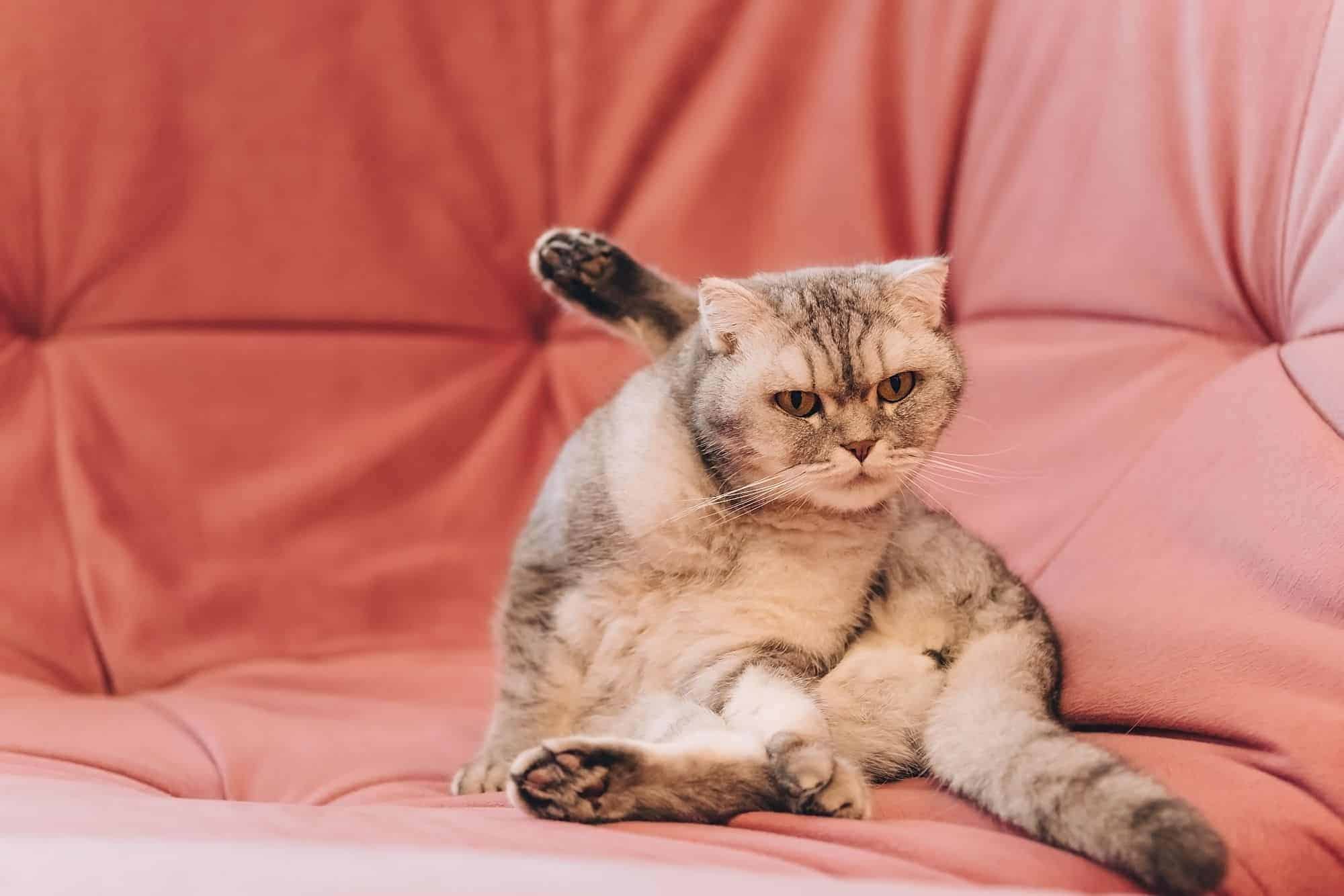A Closer Look at Anal Gland Problems in Cats

Cats are meticulous self-groomers. In fact, many of their waking hours are spent tending to the way they look, feel, and smell. That’s why it might surprise some to learn that cats can develop a tell-tale fishy smell. However, owners that frequently deal with anal gland problems in cats are all too familiar with the associated characteristics.
What to Know
Although you might not realize it until you have to deal with it, anal gland problems are relatively common in cats.
Located exactly where their name suggests, feline anal glands are responsible for producing a dark, strong-smelling fluid. Primarily used when a cat marks their territory, anal glands are also expressed during a firm bowel movement. If they have diarrhea or softer stools, their anal glands might not fully express, which could lead to anal gland problems in cats.
When they become clogged, a cat might experience sudden discomfort, anxiety, or stress. Constipation can stem from impacted or clogged anal glands. Other anal gland problems in cats can include infections and abscesses.
What to Look For
Anal gland problems in cats can initially cause excessive licking of the rear end, but can lead to butt-scooting on the rug or upholstery. Because they may experience severe itching and tenderness, cats may also behave in ways never observed before, such as biting, chasing their tail, or straining during defecation. You might see signs of swelling in and around the anus, and heightened sensitivity to touch.
Anal Expression
Did you know our groomers are proficient at expressing anal glands? An important aspect of most canine grooming appointments, anal gland problems in cats can be quickly solved by our skilled professionals.
If you think your cat needs medical attention for impacted or infected anal glands, please schedule an appointment. We may need to rinse out the anal glands or prescribe pain relief medications or antiobiotics to battle bacterial infection.
Anal Gland Problems in Cats
Adding a bit of fiber to a cat’s diet can help firm up their bowel movements. This is necessary to create pressure on the anal glands during defecation. We can help you determine if any changes to your cat’s diet are needed.
Seen as a last possible resort, anal glands can be surgically removed if a cat’s quality of life is being compromised.
If we can assist you with any questions or concerns related to anal gland problems in cats, we are always here for you at Animal Medical Hospital & Urgent Care.
